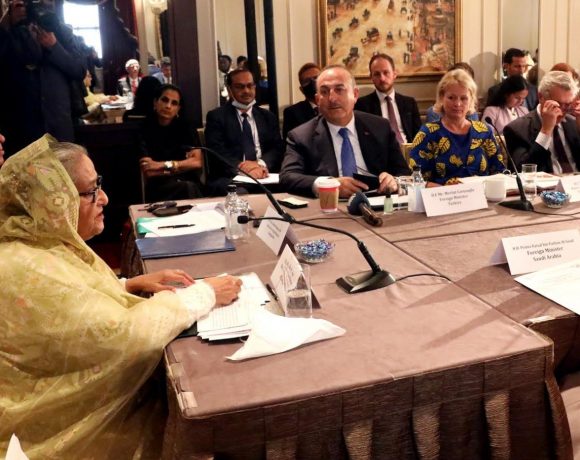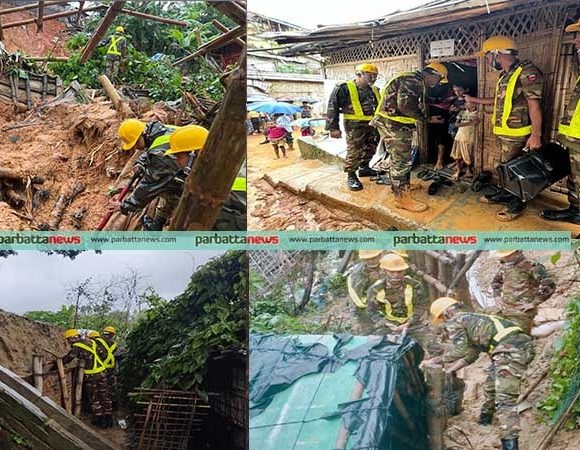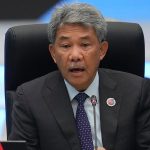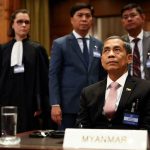PM Hasina to discuss Rohingya repatriation with Modi in upcoming India visit
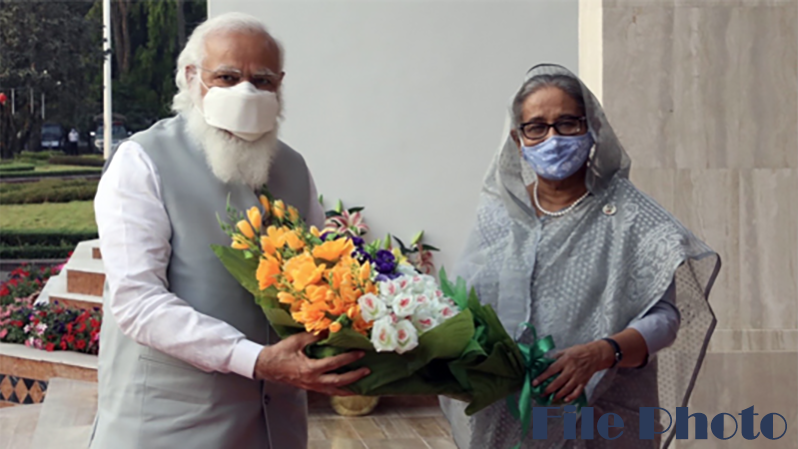
NEWS DESK
The repatriation of Rohingyas is likely to figure on the agenda of Bangladesh Prime Minister Sheikh Hasina during her upcoming visit to India, scheduled in September this year, NDTV reports citing India’s ANI news agency.
Bangladesh Foreign Secretary Masud Bin Momen in an exclusive interview with ANI said that PM Hasina, who will arrive in India on a bilateral visit on the invitation of PM Narendra Modi, will raise the issue of problems arising from the illegal migration of Rohingyas to Bangladesh from Myanmar, like the growth of radicalization, drug trafficking, as well as, human trafficking of women and children.
“To us, the only feasible solution is the repatriation of (Rohingyas) to their Rakhine state (Myanmar). I am sure that when PM Sheikh Hasina will meet PM Narendra Modi then she will also raise the issue that how India can help us in this repatriation effort,” said Bangladesh foreign secretary Momen said.
Since August 25, 2017, more than 1 million Rohingya refugees from Myanmar have fled to Bangladesh. This Rohingya refugee crisis is among the largest, fastest movements of people in recent history.
“Well we have been asking the international community to assist us not only in terms of humanitarian efforts that are required to maintain this huge population of over one million Rohingyas but at the same time we have to look towards some sustainable solutions for this problem, to us the only feasible solution is the repatriation of Rohingyas to Rakhine state from where they came (Myanmar),” said Momen.
The complex Rohingya refugee crisis erupted in August 2017, following attacks on remote police outposts in western Myanmar by armed groups alleged to be from within the community.
These were followed by systematic counterattacks against the minority, mainly Muslim Rohingya, which human rights groups, including senior UN officials, have said amounted to ethnic cleansing.
Speaking about the important role India can play in the repatriation efforts, the Bangladesh foreign secretary said: “We are talking to the Myanmar authorities, but I think other countries can be of some help or assistance if it is agreeable to Myanmar. Since India is a common neighbour to both Myanmar and Bangladesh, we have also requested in the past and will continue to request India to play a more active role in terms of repatriation especially when these Rohingyas go back to Rakhine state in Myanmar.”
“If they can find the right conducive atmosphere that could be held for in terms of accommodation of their betterment healthcare and sustainable livelihood some initial help would be required and that was provided by country like India and if Myanmar agreeable on that, will be a game-changer for Bangladesh,” Momen said.
The Bangladesh diplomat also said that he had highlighted the repatriation issue with his former Indian counterpart Harsh Vardhan Shringla last year. Momen also informed that the issue was recently discussed by External Affairs Minister, S Jaishankar.
“I am sure PM Sheikh Hasina when she meets with PM Modi, will also raise how India can help us in this repatriation of Rohingyas,” said Momen.
Over the past five years, refugees from the Rakhine state have been flooding into Cox’s Bazar district in Bangladesh, to join the over 2,00,000 Rohingyas living there who had fled years before the crisis in 2017.
Today, it is estimated that over a million stateless Rohingya refugees live in the world’s largest and most densely populated refugee camp, Kutupalong in Bangladesh. About half of the refugees are women and children.
“It is a very congested place in Cox’s Bazar, we are trying to decongest it by moving a part of a population through Bhasan Char island, but then that is also a temporary solution,” said Momen.
Bangladesh is worried about Rohingyas and their illegal activities in the country. Several Rohingyas have been booked in drug smuggling and child trafficking cases and there are fears about radicalization of the Rohingyas by third parties in the region.
“…More than 60 per cent of the Rohingya (refugees) are very young… there are fears that they could be some radicalisation (of them)…and obviously that can turn out to be a headache…not only for Bangladesh but beyond its (surrounding) region. … Drugs and human trafficking including women and children en-route to Malaysia Indonesia and Thailand and also near the Andaman Sea (India) we have also found some activities,” Bangladesh foreign secretary told ANI.
Bangladesh has recorded a sharp increase in the crime rate due to the migration of Rohingyas into the country and it’s a matter of concern. As per police data in Dhaka, when the mass exodus happened in 2017 from Rakhine state in Myanmar to Cox’s Bazaar in Bangladesh.
“The Rohingya are engaged in 12 types of crime including murders, drug and human trafficking, arms and gold trafficking, rape, robbery, abduction, ransom and attacking law enforcement agencies. By October 2021, 71 murders, 762 drug trafficking, 87 arms cases, 28 human traffickings, 65 rape incident, 10 robberies, 34 abduction and ransom incidents and 89 miscellaneous crimes were filed in the local police station,” Cox Bazaar District Police said.
At the upcoming United National General Assembly (UNGA), Bangladesh PM Sheikh Hasina is scheduled to speak and she is likely to raise the early repatriation of Rohingyas, seeking support global community.

